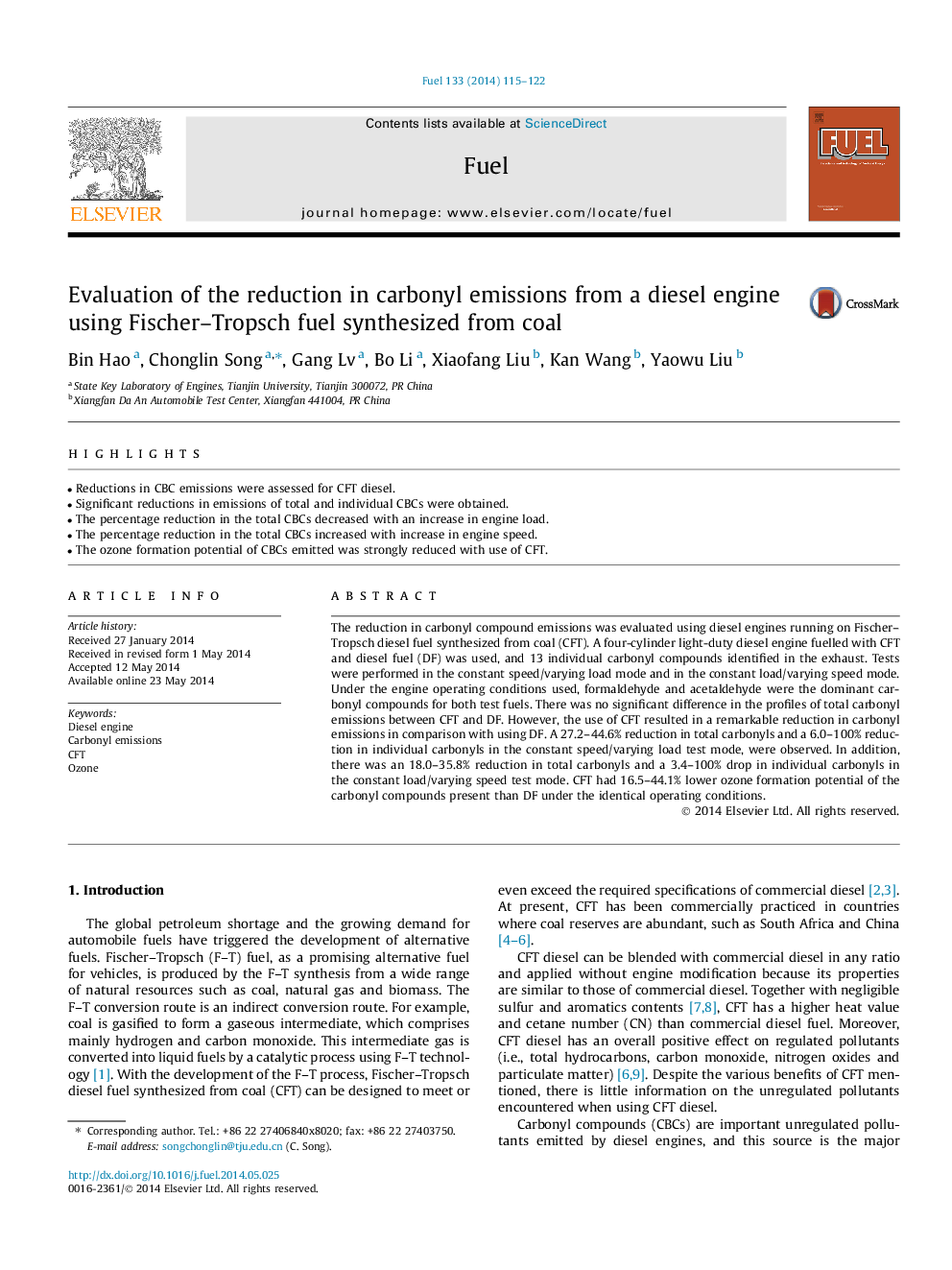| Article ID | Journal | Published Year | Pages | File Type |
|---|---|---|---|---|
| 6637112 | Fuel | 2014 | 8 Pages |
Abstract
The reduction in carbonyl compound emissions was evaluated using diesel engines running on Fischer-Tropsch diesel fuel synthesized from coal (CFT). A four-cylinder light-duty diesel engine fuelled with CFT and diesel fuel (DF) was used, and 13 individual carbonyl compounds identified in the exhaust. Tests were performed in the constant speed/varying load mode and in the constant load/varying speed mode. Under the engine operating conditions used, formaldehyde and acetaldehyde were the dominant carbonyl compounds for both test fuels. There was no significant difference in the profiles of total carbonyl emissions between CFT and DF. However, the use of CFT resulted in a remarkable reduction in carbonyl emissions in comparison with using DF. A 27.2-44.6% reduction in total carbonyls and a 6.0-100% reduction in individual carbonyls in the constant speed/varying load test mode, were observed. In addition, there was an 18.0-35.8% reduction in total carbonyls and a 3.4-100% drop in individual carbonyls in the constant load/varying speed test mode. CFT had 16.5-44.1% lower ozone formation potential of the carbonyl compounds present than DF under the identical operating conditions.
Keywords
Related Topics
Physical Sciences and Engineering
Chemical Engineering
Chemical Engineering (General)
Authors
Bin Hao, Chonglin Song, Gang Lv, Bo Li, Xiaofang Liu, Kan Wang, Yaowu Liu,
